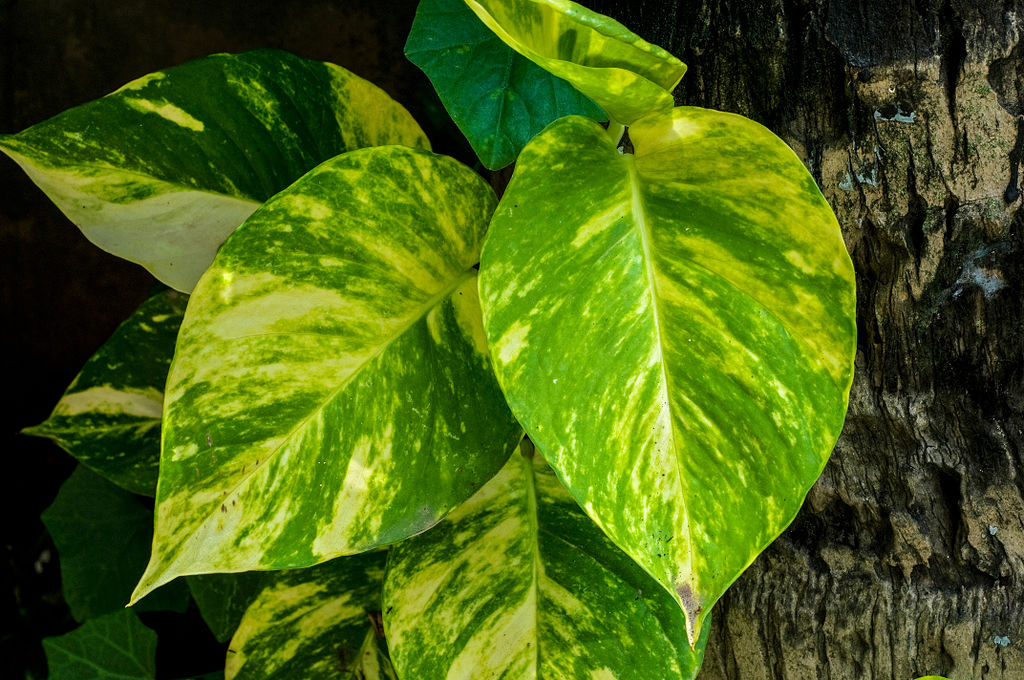Your cart is currently empty!
Michigan Planting Tips and Growing Advice
Buy POTHOS | Epipremnum aureum

Epipremnum aureum
From Wikipedia, the free encyclopedia
Jump to navigationJump to search
| Epipremnum aureum | |
|---|---|
| Scientific classification | |
| Kingdom: | Plantae |
| Clade: | Tracheophytes |
| Clade: | Angiosperms |
| Clade: | Monocots |
| Order: | Alismatales |
| Family: | Araceae |
| Genus: | Epipremnum |
| Species: | E. aureum |
| Binomial name | |
| Epipremnum aureum (Linden & André) G.S.Bunting, 1964 | |
| Synonyms[1] | |
| Epipremnum mooreense Nadeaud, 1899 Pothos aureus Linden & André, 1880 Rhaphidophora aurea (Linden & André) Birdsey, 1963 Scindapsus aureus (Linden & André) Engl., 1908 |
Epipremnum aureum is a species in the arum family Araceae, native to Mo’orea in the Society Islands of French Polynesia.[2] The species is a popular houseplant in temperate regions but has also become naturalised in tropical and sub-tropical forests worldwide, including northern South Africa,[3] Australia, Southeast Asia, South Asia, the Pacific Islands and the West Indies, where it has caused severe ecological damage in some cases.[3]
The plant has a number of common names including golden pothos, Ceylon creeper,[4] hunter’s robe, ivy arum, house plant, money plant, silver vine, Solomon Islands ivy, marble queen, and taro vine. It is also called devil’s vine or devil’s ivy because it is almost impossible to kill and it stays green even when kept in the dark.[5] It is sometimes mistakenly labeled as a Philodendron, Pothos or Scindapsus in plant stores. It is commonly known as a money plant in many parts of the Indian subcontinent.[6][7] It rarely flowers without artificial hormone supplements; the last known spontaneous flowering in cultivation was reported in 1964.[8]
The plant has gained the Royal Horticultural Society‘s Award of Garden Merit.[4][9]
https://shareasale.com/r.cfm?b=2031759&u=3185608&m=125148&urllink=comfortplants%2Ecom%2Fproducts%2Fpothos%2Dgolden%3F%5Fpos%3D7%26%5Fsid%3De7483cb50%26%5Fss%3Dr&afftrack=




